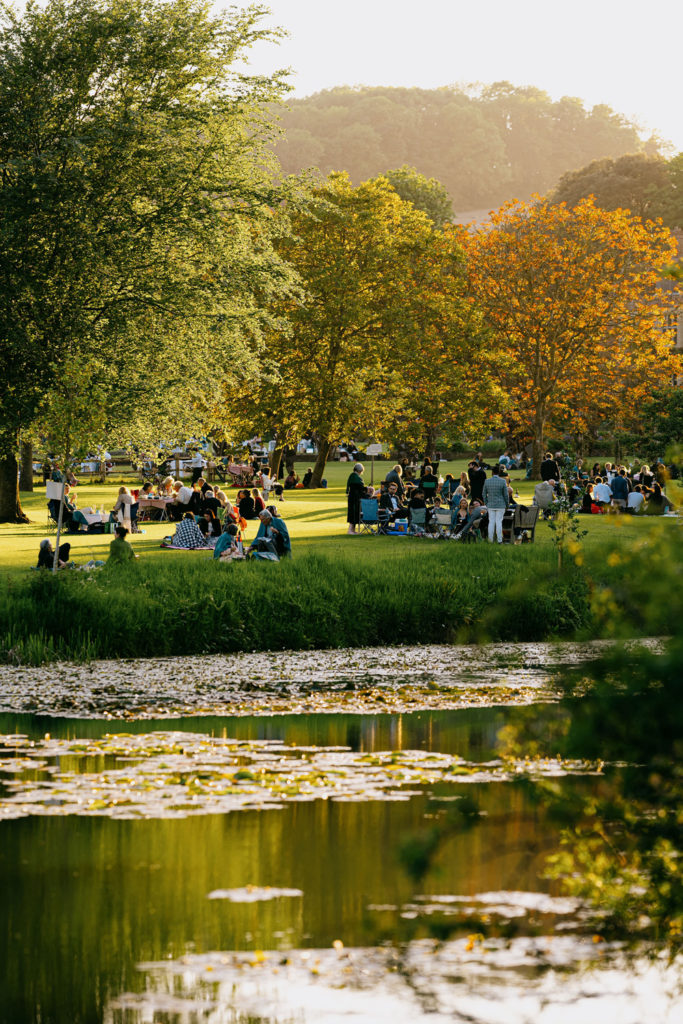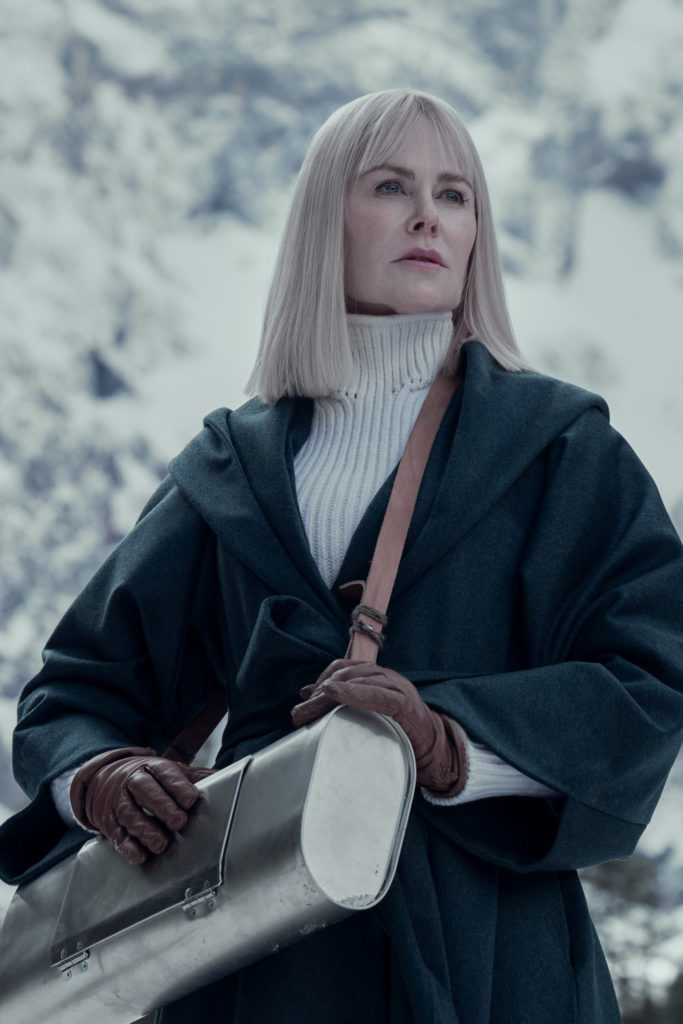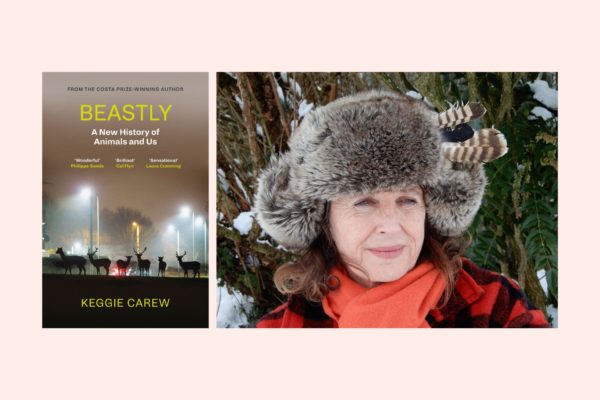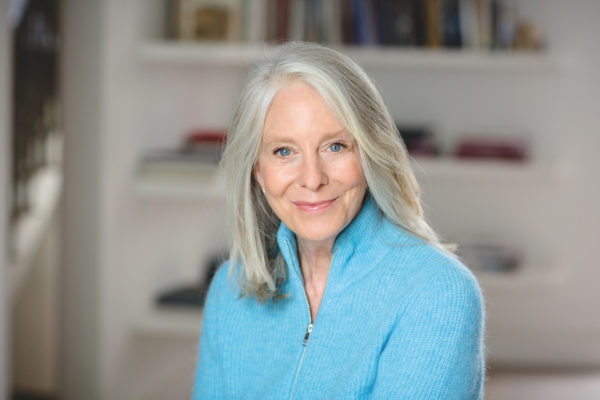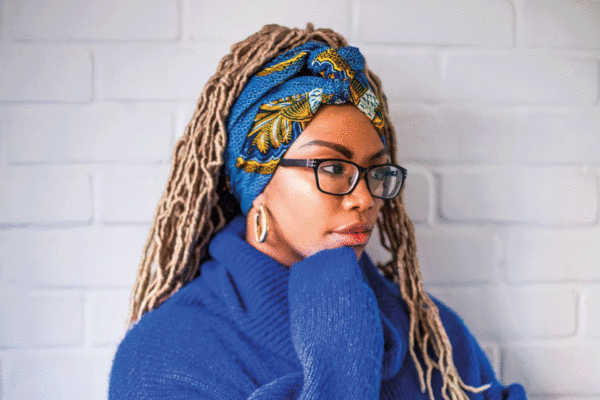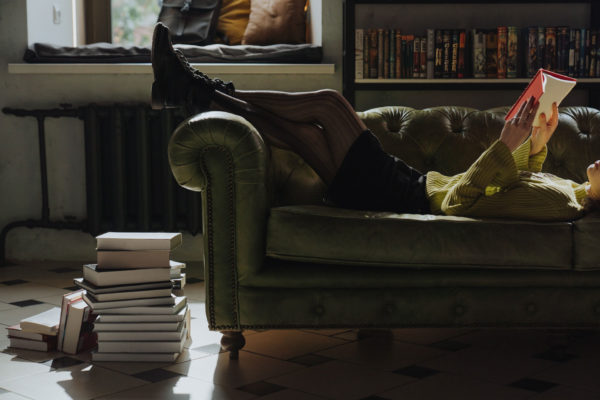C&TH Book Club: The List by Yomi Adegoke
By
2 years ago
Diving into the journalist's first work of fiction
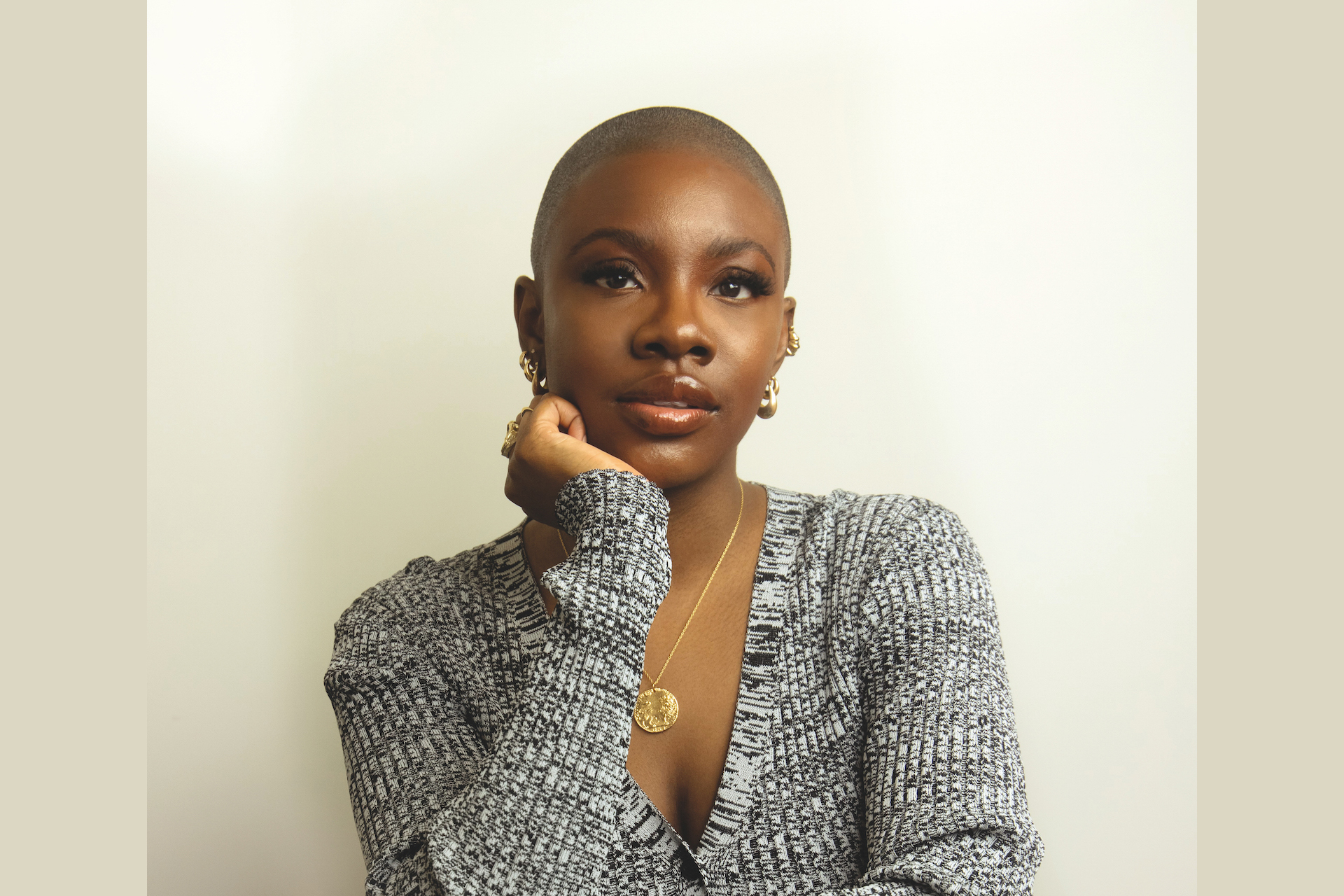
In the latest C&TH Book Club Yomi Adegoke talks to Belinda Bamber about #MeToo, S&M and choice feminism.
Main image: © Mollana Burke
C&TH Book Club: The List by Yomi Adegoke
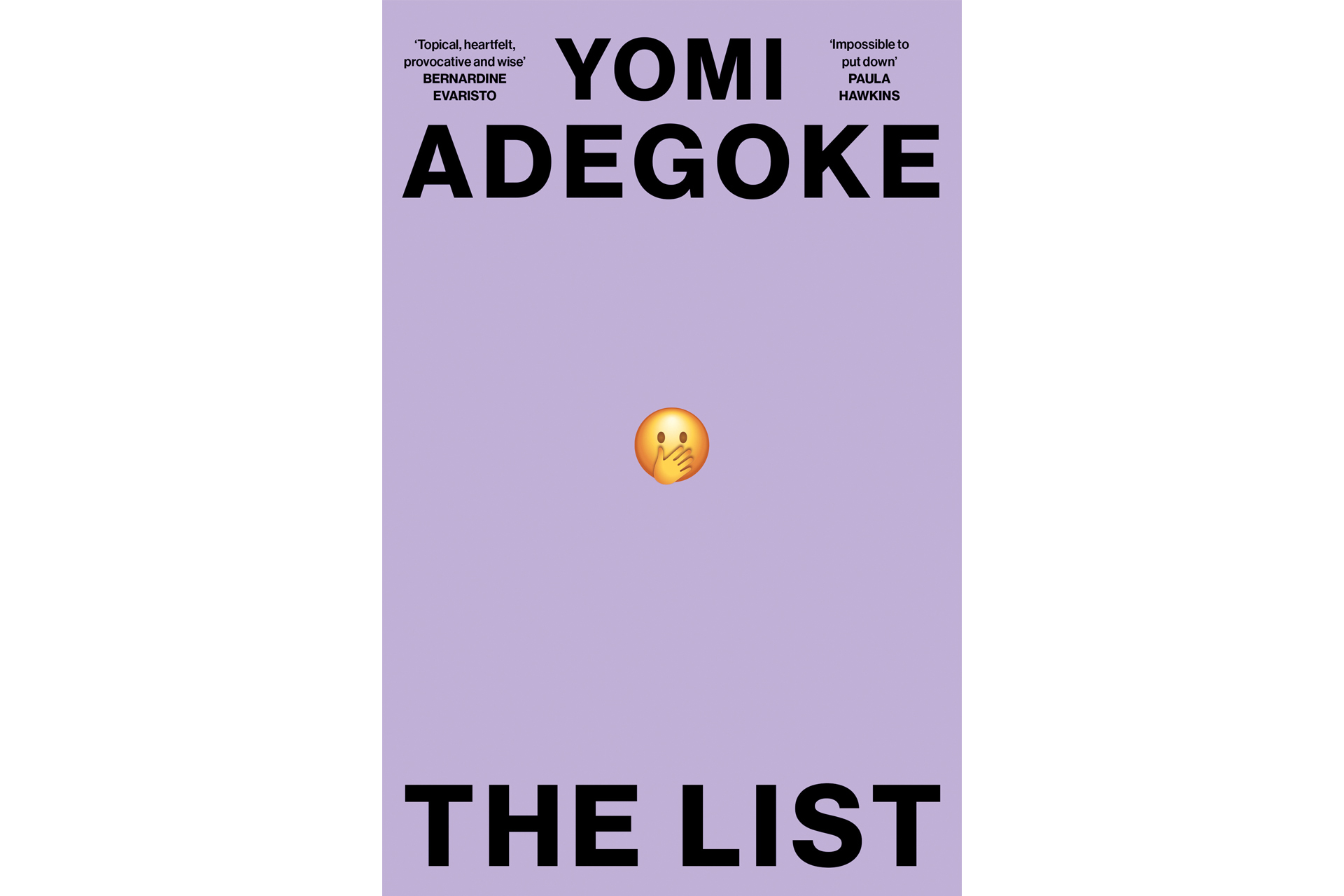
Belinda Bamber: The List is a page-turner with warm, relatable characters, yet the plot hinges on a dark subject: a list of alleged sexual abusers, with a shock exposure that threatens to derail Ola and Michael’s wedding. What inspired it?
Yomi Adegoke: I originally conceived The List as a non-fiction, journalistic piece. I was really interested in the proliferation of anonymous lists that alleged abuse at the height of #MeToo in 2017. As a journalist I wanted to explore the ethics and look at how anonymity can at times be weaponised on the internet; as a feminist I wanted to understand the importance of whisper networks. Lists such as the one in the book were a breakthrough for many women in terms of seeking justice for abuse in industries where it had so long been ignored. But in 2017 it was still quite a fraught and unfolding situation, so I shelved the idea and came back to it a few years later as a play. I decided that wasn’t my best work, so when lockdown came and I wasn’t able to do the types of writing I’m normally commissioned to do, I decided to tell it as fiction.
BB: It’s been flagged as a summer “water cooler” book because the subject matter of sexual assault, consent and trolling is sure to trigger debate. What’s behind Ola’s story?
YA: I started writing from Ola’s perspective because I felt that the story of women connected to men of abuse is usually erased, or there’s a lot of projection. People assume that the women in question know about the abuse or are complicit or apologists in some way. It’s rare you actually hear from them. It’s interesting, for example, that when Harvey Weinstein was found guilty of multiple instances of abuse, Scarlett Johansson chose to wear a Marchesa dress (from Weinstein’s wife’s brand) to a gala and was called out for doing so – because supporting Weinstein’s wife was seen as an implicit way of supporting him. But that’s taking a biblical interpretation of marriage as ‘one flesh and blood’, when his wife had obviously been cheated on and lied to. There was no grace given to the fact she may well not have been aware of what he was doing.
BB: One of the book’s strengths is how even-handedly you treat your characters. Did your sense of Ola and Michael change as you were writing the book?
YA: Yes, I would definitely say my sense of them changed as the book progressed, primarily because it was originally just going to be from Ola’s perspective but as time went on I felt Michael’s viewpoint was missing, so I decided to weave his thoughts and experiences into it – and this also changed how I was writing Ola. That’s how the story began oscillating between them throughout the book. The more I had to embody each character and switch between the two, the more real to me they became. When I was writing Ola’s chapters I was in her head, and when I was writing Michael’s I was in his. It created an immediate level of empathy and humanity within each character. So the reason The List is, hopefully, nuanced is because I genuinely came to see and understand both their perspectives as I was writing it.
BB: Do readers take sides?
YA: Readers definitely do take sides, but what’s been interesting to me is that men often take Ola’s side and women often take Michael’s, which I definitely didn’t expect.
BB: Did you map the story line from the start, with the satisfying twist at the end, or did it evolve?
I did very much plan it and I knew exactly what was going to happen from chapter one to 29 – though not immediately! I’d never written a novel before, at least not in adulthood, so I originally tried to fly by the seat of my pants, to just open my laptop and write – but it didn’t work for me at all. So then I began to break it down into chapters and write a short, detailed synopsis for each one and that was very helpful. I had only written nine chapters when I sold it but because I’d written down the next 20 chapters in a very detailed way, that helped when it came to selling the book at auction. In terms of the ending I knew it would be one of three and I spoke about them all at length with my editor. I’m happy with the one I went with.
BB: At their best, Ola and Michael laugh and talk together in a way that indicates a strong friendship at the heart of their romance. What’s the secret to a good relationship?
YA: I’m glad you picked up on Ola and Michael’s friendship, which I do think is a core tenet of any healthy, happy romantic relationship that intends to grow. But I think they’re lacking two other crucial elements: trust and communication. One reason I chose to write the story from both perspectives was to articulate the things they weren’t saying to each other but probably should have been. Lack of transparency is a problem people experience within general relationships as well as romantic ones. For Ola and Michael it meant there was a lack of trust that affected them in lots of different ways. So, friendship is a huge part of any relationship, but trust is also key to that. Communication, especially in this generation, is very underrated.
BB: How has the internet changed modern relationships?
YA: Modern communication has in many ways decimated our ability to be vulnerable. I don’t want to be a cliché in decrying the ubiquity and influence of dating apps, but that mindset of the grass always being greener, of everyone being replaceable, the gamification of connection… all this affects our ability to fully show up. The new dating trends and bad habits such as ghosting and zombieing that many modern daters experience make it feel like a race to the bottom led by technology. Bad dating habits such as ghosting and breadcrumbing mean people are on the defence and will disappoint others to avoid getting hurt themselves. It’s not sustainable and people are tapping out of that dynamic because it doesn’t feel fulfilling.
BB: What would you advise your younger self?
YA: I’m actually quite proud of younger Yomi’s dating experiences. Growing up in a house of girls and being a girl’s girl with an almost entirely female friendship group I’ve never been one to put my value in men, so I never had that sense of dating for anything other than fun and wanting to have a good time and make connections. If a situation wasn’t good for me, I was quite good at extricating myself. I saw that my friends made me a better person, so I expected the same from relationships. If anything, younger Yomi probably could probably give me advice! The only advice I’d give younger Yomi now is perhaps to have her guard down a little bit. Like many millennials, I’ve always dated on the defence, and that’s probably still an issue now.
BB: Both Ola and Michael have close family ties, and you’ve dedicated your first novel to the memory of your ‘loving grandad’. What does family mean to you?
YA: My family mean everything to me. We’re really really close. As you noted, my book is dedicated to my grandad, who died when I was ten, and despite being 31 now, I still feel the influence of him and my nanna: they were crucial to me in my formative years. My entire family – me, my two sisters, and my mum and my dad – would travel to Tooting, which isn’t far from where we live in Croydon, every Sunday to have dinner with them, and we used to go on holidays with them a lot. I’m also very very close to my sisters – my first book Slay in Your Lane was dedicated to them – and I live within a 15-minute radius of my three best friends in London. Elizabeth Uviebinené, who I lived with for a while and co-wrote my first book with, used to spend Christmases with me and my family. My other best friend has a gorgeous son who I’m very lucky to be godmother to, and the third I’ve known since I was 15. I’m very very lucky: essentially, my family are my friends and my friends are my family. They’re core to who I am.
BB: The List explores the dangerous territory of consent in the bedroom, including S&M. Is it possible to empower women so we can confidently balance sexual freedom, safety and respect? And if so, how do people find that path?
YA: This is a brilliant question and a difficult one. First of all, ask yourself ‘why am I doing this?’ In this context, if the answer is anything other than ‘because it’s something that makes me feel good,’ I’d be wary. Women think that if they don’t engage in certain practices they’re frigid or uninteresting, when the only question they should ask themselves is: ‘Does it make me feel good?’ If the answer to that is yes, I would be less concerned.
Secondly, I think the assumption that choosing to do something as a woman is inherently a feminist or empowering choice is quite a dangerous thought process and one that we see more in this current wave of feminism, where choosing to do something that isn’t necessarily inherently feminist is seen as feminist just because you’re a woman. Sometimes we need to work outside that framework and acknowledge that some decisions we make aren’t going to be empowering or feminist and we still choose to do them because we want to.
We need to be honest with ourselves about that cognitive dissonance. As soon as I took a step back and thought: ‘Maybe this decision isn’t feminist but I’m doing it anyway because I want to and I’m not harming anybody, myself included,’ I felt more comfortable. We shouldn’t absolve ourselves of responsibility because of systems and norms that outdate us but aim to be more honest with ourselves about our motivations. That recognition has made me feel more at peace with decisions I make, whether that’s in relationships or in life.
For example, I’m a Yoruba woman, I’m Nigerian, and culturally men usually pay for things. I’m aware that it’s not a feminist stance or an empowering one, but if I’m happy to let a man to pay for things for me I’m not going to try and explain it in a way that would align with my feminist praxis, because it just doesn’t.
BB: Linguistically, The List moves effortlessly between Nigerian, Ghanaian and London-media rhythms of speech – it’s one of the pleasures of the book. Have you always had a finely tuned ear for language and is that an essential attribute for a novelist?
YA: Thank you very much. I’ve always been told that I write like I speak, especially in my non-fiction writing, such as my columns. I do consider writing almost like the transcribing of my thoughts, like a conversation in and of itself. There are other skill sets I’ve had to hone as this is my first novel and I’ve very much cut my teeth writing non-fiction, but dialogue and conversation is perhaps where I have a natural knack and I’m very grateful because I know it can be hard. Bad dialogue can take you out of a story immediately – I’m quite attuned to this specifically with Black characters from a particular Black background because I’m writing a very specific type of person that I know well, and I’ve heard it done wrong so many times. Something as simple as the wrong slang word can just pull you out of the story, because you just know someone from this area wouldn’t use that colloquialism. So for me it’s definitely something I need to prioritise.
BB: Ola and Michael lingered in my mind after I’d finished the book. How did it feel for you to reach the end?
YA: I’m thrilled that Ola and Michael stayed with you for a long time after the book was finished because it was the same for me, they became incredibly real towards the end of writing it. I thought about them a lot and would often be drifting asleep and then think about something and make notes and drive my editors mad by making last-minute amendments to their story arcs. I felt very relieved when I finished it because even though I’d sold a manuscript of nine chapters I didn’t have the confidence I’d make it to the end. When I sent it in and my editors said they liked it, my shoulders dropped a bit because I’d had lot of anxiety, worrying ‘what if the first chapters were strong and the rest of the book was really shit?’ It was a massive relief.
But when it came to discussing a TV adaptation and I was meeting with lots of companies, and people asking if I wanted to do a spin-off, then it became clear to me that the story really ends in this book. The idea of putting my characters through any more just didn’t feel like something I could do.
BB: Your previous book Slay in Your Lane: The Black Girl Bible (2018), co-authored with Elizabeth Uviebinené, was highly acclaimed. What’s changed in the industry since then?
YA: It has been five years since Slay in Your Lane came out and me and Elizabeth have been thinking a lot about how much has changed and how grateful we feel to have been to have been part of that process. It was 2015 when we had the original idea – it was before black squares [expressing BLM solidarity] on Instagram, before the conversations around race and feminism and certainly before the conversations on the two together became mainstream. We were very intentional that we wanted our book to be presented and marketed as something that was unapologetically for and about Black women, but also could be read and enjoyed by everyone – just as books that are absolutely written with white audiences in mind have been enjoyed by readers such as ourselves for years. We were young when we did it and we didn’t realise the impact it was going to have and… humbly, I think it did launch a genre. It has led to a wave of books that are not being marketed as though only Black women can read them. Yes, Slay in Your Lane is absolutely for Black women but anyone can read and learn and enjoy it – so I think it did change a lot in publishing and that’s something we don’t take for granted.
BB: What would you advise aspiring young Black writers today?
YA: My advice to young Black writers today in particular would be not to feel pressured to write about things they don’t want to, that don’t necessarily feel authentic to them. There is definitely a pressure on minoritised writers to write to that identity and those experiences, or about something that makes their minoritised identity focal to that piece. That works for a lot of people but if it’s not what you want to write you shouldn’t have to, because it’s not a pressure that, for instance, white male authors have. I don’t think minoritised writers should either. My advice would be to stick to your guns and write to what you want. In 2018, there was no assumption that Slay in Your Lane would be commercially successful within the industry and yet it was, so now I think the assumption might be that Black authors need to write books that focus on their identity and place that at the forefront because that’s what the ‘trend’ might be, but we should be allowed to take risks in the way that other authors from other backgrounds are.
BB: You’re a successful columnist for the Guardian among others, and Ola has a comparable job, writing pieces on popular culture for a feminist magazine. What was your own route into journalism?
YA: I studied law at university and took a year out in my second year because I was struggling with depression. Just before I dropped out I had started a pop culture blog as a form of escapism. During my year out a friend advised I should get some funding – it was a very different media landscape, a lot less diverse but there were more available grants – and I started a magazine called Birthday aimed at young Black girls. I wrote and edited it and found people online to contribute. It was about hair and make-up and pop culture and various other things. I used the grant to do photo and cover shoots and I had copies printed that I gave out to local hair shops in South London. Then I went back to uni, got my degree and, as it was so difficult to get work experience, I used the magazine and blog as my CV, and got some internships. I managed to get a job at ITN on graduation, and was there for about nine months before the pop culture website they had launched was liquidated. I was about to be made redundant but ITN had the same offices on Gray’s Inn road as Channel 4 News, who invited me up for an interview. I stayed at Channel 4 for two and a half years and got a book deal just before I left for a women’s magazine, The Pool. I was there for about nine months before the workload around the launch of Slay in my Lane became too overwhelming. Then I went freelance.
BB: How did you navigate the change to writing fiction?
YA: Writing’s writing, but I know that just because you can write in one medium doesn’t mean you can write in another. My last novel before The List was a book I wrote in primary school aged about eight, on a computer game called Storybook Weaver that my dad got for me and my sister. (It was called Baby World and was a rip-off of Rugrats.) So I hadn’t written a book in like 20-something years. I didn’t want to come to the profession with the arrogance of assuming that novel-writing is a transferable skill, so I went to a writing retreat in Devon. I’d written 80,000 words in lockdown and cut 50,000, so I had 30,000 to take to the retreat and hone. My tutor was an author called Alison May who gave me very practical advice on fiction-writing that was very helpful for making the switch. It was transformative, actually.
BB: What’s next?
YA: Now I’m starting the whole process again because it’s a two-book deal so I’ve written three chapters and it’s a similar feeling, I’m hoping I’ll make it to the end and it will be good! It’s similarly controversial to the first one and I’m having a lot of fun. I’m also working concurrently on the TV adaptation of The List.
BB: Which writers inspire you?
YA: I’m a huge Chimamanda Ngozi Adichie fan and I had the pleasure of interviewing her at the Southbank Centre a few years ago. She was incredibly gracious and fearless and writes in a way that is just crystal clear. I think she’s incredible. I’m a big fan of Kiley Read who wrote Such a Fun Age and in many ways inspired the format of The List in terms of oscillating chapters. I’m the biggest ever Jesse Armstrong fan – I love Succession but have also been a day one Peep Show fan, all through the ten series. I used to watch it when I was really young and I just think he is brilliant at writing messy, complicated characters that you root for, regardless. I’m also a very big Tayari Jones fan – he wrote An American Marriage, which again has that dual perspective and made me cry on the plane back from the Bahamas last year. I just thought it was a brilliant book. Those are some of my favourite writers.
BB: Finally, this is our ‘regeneration’ issue – how does that word resonate for you?
YA: I love the idea of looking at your life in terms of different eras – in popstar terms you could look at the different eras of Cher or Madonna or Beyoncé – and reinventing yourself, whether that’s aesthetically, or doing new things, or taking on a new mindset, whenever you feel like it, but still remaining who you are at the core. In society there’s the headspace that you can’t teach an old dog new tricks, but I like the idea that we’re on a constant journey of self-improvement and growth. I really detest the idea that ageing is a rotting rather than a ripening and I feel it’s a privilege to get older and be able to discover new paths and things about yourself. I always had a latent hope that I might one day write fiction but had lockdown not happened and I’d been given that time it’s unlikely I’d have done it, or not for years. It’s always very exciting to discover parts of yourself you didn’t know were there, or even just create new parts of yourself. So that’s how regeneration resonates for me.
The List by Yomi Adegoke is published on 20 July by 4th Estate (£14.99). Yomi will discuss The List in conversation with Bernardine Evaristo at the Southbank Centre’s Queen Elizabeth Hall on 20 July at 7.30pm. Book tickets at southbankcentre.co.uk


